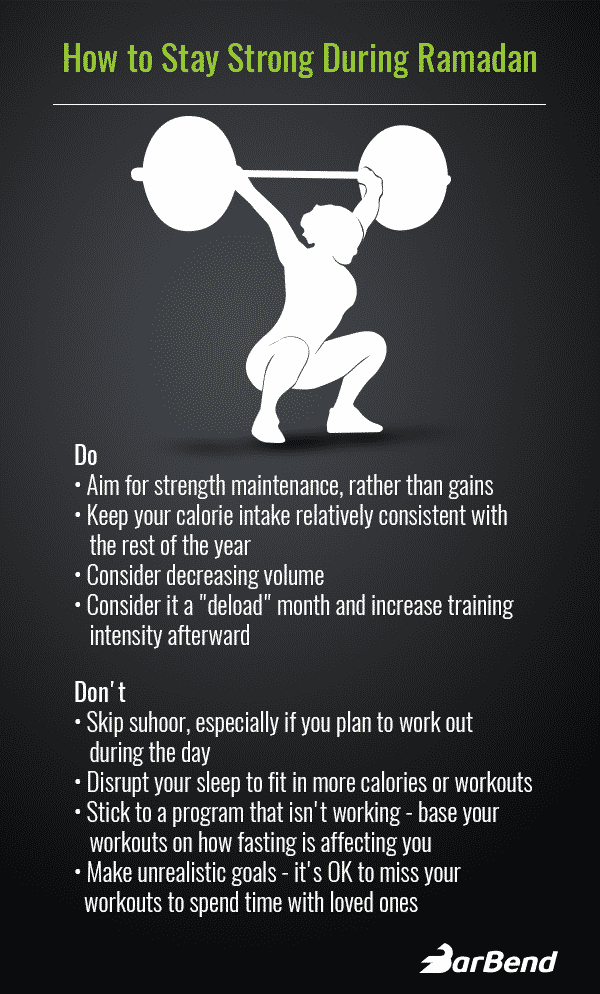Source from: https://barbend.com/author/nick-english/
Fasting from both food and fluid all day, every day, for an entire month, puts the body under stress. And for many Muslims, that’s the point: the month of Ramadan is for spiritual reflection and devotion, self-discipline, and charity — not for doing what feels good or comes easy. It’s meant to be challenging.
And it’s almost certainly going to affect your workouts, no matter how popular intermittent fasting has become in the fitness industry.

It’s Not Really Intermittent Fasting
Clearly you’re fasting intermittently, but capital I.F. Intermittent Fasting is an approach to eating that has become popular in recent years as a means for, among other things, controlling caloric intake and optimizing hormones. In fitness circles, it usually means restricting your feeding windows to a few hours per day, or fasting for 24 hours once or twice per week.
But there are a few important differences between the way Intermittent Fasting is popularly employed by internet fitness gurus and the way it’s traditionally undertaken during Ramadan.
“Training fasted is not always as awesome as it’s cracked up to be, especially because most people who talk about it on the internet aren’t doing a liquid fast,” says Brian St. Pierre, CSCS, the Director of Performance Nutrition at Precision Nutrition. “They’re maintaining hydration, they’re sipping on BCAAs while they train, they drink coffee beforehand. And they’re often just fasting during their sleep and then extending their morning fast a little bit, whereas during Ramadan you’re fasting during the majority of your waking hours. So it’s a little bit of a different animal in that regard.”
That doesn’t mean that it’s impossible to have a productive workout during a Ramadan fast, nor does it mean there’s no evidence that fasted training could have some benefits.
But truly fasted training, after hours of no fluid intake, performed every day — often during some of the hottest months of the year? There are several studies showing that athletic performance is likely to take a hit, at least for most people.
But you might be able to time your workouts to your advantage.


